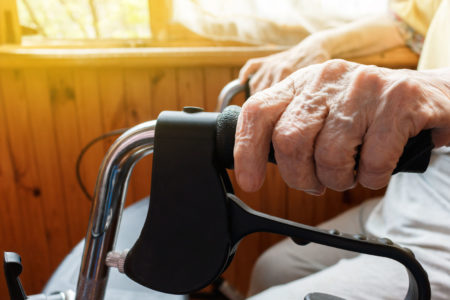
(This article has been translated into French.)
Should people with mental illness as their sole underlying medical condition be allowed to have access to medical assistance in dying (MAiD)? That’s a question in front of Parliament right now. The House of Commons has passed a Bill that excludes MAiD for persons suffering from mental illness as their sole underlying medical condition. The Senate amended that Bill to put a sunset clause on the exclusion (it will cease to have any force and effect 18 months from the coming into force of the Bill). Soon the amended Bill will be back before the House, which will have to decide whether to accept the amendment.
Notably, in its report on Bill C-7, the Senate standing committee on legal and constitutional affairs wrote that some witnesses “underscored that an exclusion and strong safeguards are needed to protect Canadians with mental illness under a MAiD regime, especially given that suicidality may often be a symptom of certain mental illnesses.” Unfortunately, this way of thinking about the relationship between suicide and MAiD confuses more than it clarifies.
Suicidality is associated with certain psychiatric diagnoses, but by no means all or even most of them. Furthermore, not all persons who are suicidal have a mental illness. Rational suicide – the desire for individuals not suffering from a mental illness to end their own lives – has always existed. Indeed, the entire project of MAiD is premised on the idea that there are individuals who under certain circumstances have justifiable reasons to end their own lives. In addition, Parliament has already taken the position that the presence of a mental illness itself does not exclude the possibility of a rational desire to die, as there are people who have already legally accessed MAiD who suffer from both mental illness and physical conditions concurrently. (See the Feb. 2 testimony of Dr. Derryck Smith at the Senate standing committee, at the 18:02:40 mark.)
From a clinical point of view, decisions to try to prevent someone from dying are not motivated by the mere presence or absence of a diagnosable mental illness. Rather, we intervene in order to try to modify their specific circumstances, such as a personal crisis, or the acute symptoms of their illness. Our actions also depend on whether the person is able to act in their own interests. We are likely to intervene to prevent the death of a person who is considering suicide when they lack decision-making capacity, for instance when they are severely intoxicated, even if they have no psychiatric history.
By contrast, we do not necessarily intervene to prevent the death of a person who wants to refuse life-sustaining treatment or to access MaiD due to a physical condition even if this person has a concurrent serious, and chronic, psychiatric condition. The answer to the question – does this person have a mental illness? – does not tell us whether we should prevent or assist the person ending their life.
When it comes to mental illness and MAiD, therefore, we must determine whether an individual seeking to bring an end to their life should be prevented from doing so, or not. Trying to decide whether the person is “suicidal” is simply shorthand for talking about the kinds of circumstances previously mentioned – personal crisis, acute episode of illness, incapacity, among others – where collectively, we have already determined that we should intervene to prevent a person from acting. The possibility of permitting some individuals with mental illness to make a request for MAiD does not impede suicide prevention efforts in these kinds of circumstances.
Thus, the statement “suicidal behaviour can often be a symptom of mental illness” is at once too broad and too narrow. It misuses the idea of a symptom as a proxy for situations in which we want to act to prevent death. And by focusing on only those circumstances in which suicidality is a symptom of a mental illness, it simultaneously ignores the fact that there may also be situations in which we want to prevent death amongst those with no diagnosed mental illness at all.
By legalizing MAiD, Canadian Parliament has already decided that, in certain circumstances, it is acceptable to assist someone to die. Instead of excluding mental illness through a reflexive association between mental illness and suicide, we propose reframing the debate about MAiD and mental illness by asking: In which circumstances do we, as a society, wish to prevent death? In which circumstances, and under what safeguards, are we prepared to assist its arrival? By avoiding the shortcuts of medical terms, we can clarify what’s at stake and focus the debate on what criteria and safeguards will prevent those deaths that we should prevent.
Photo: Shutterstock.com, by Africa Studio













